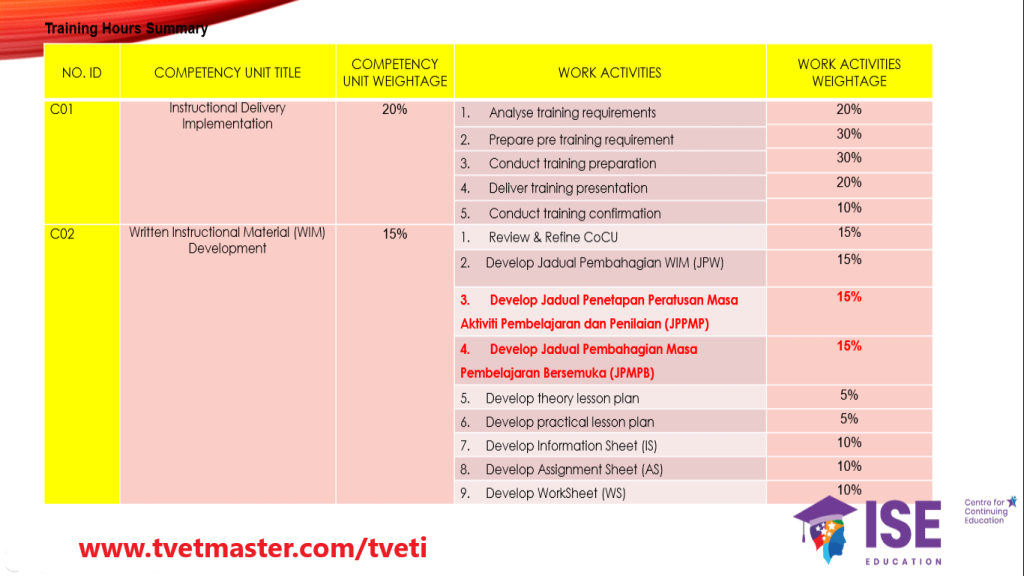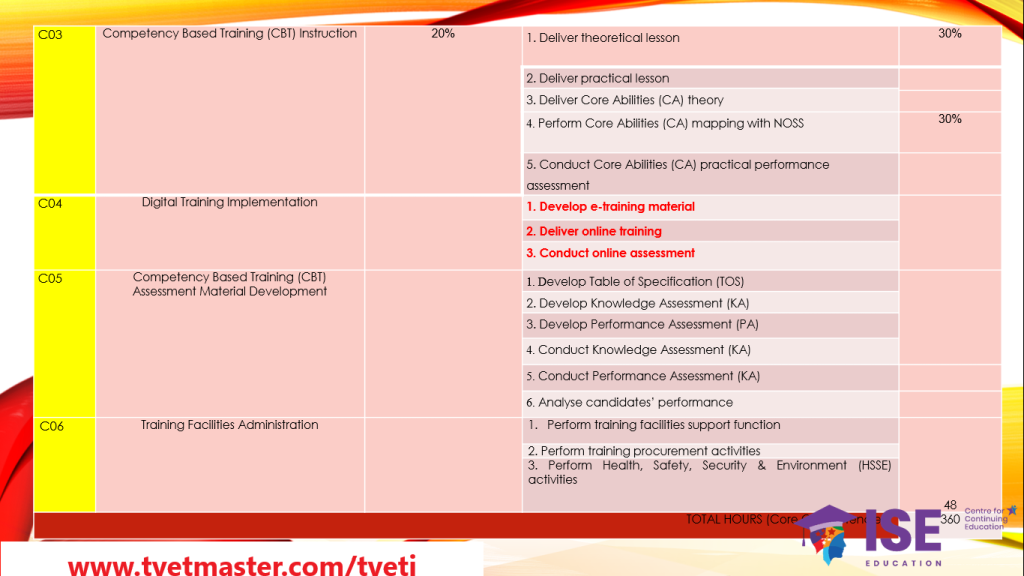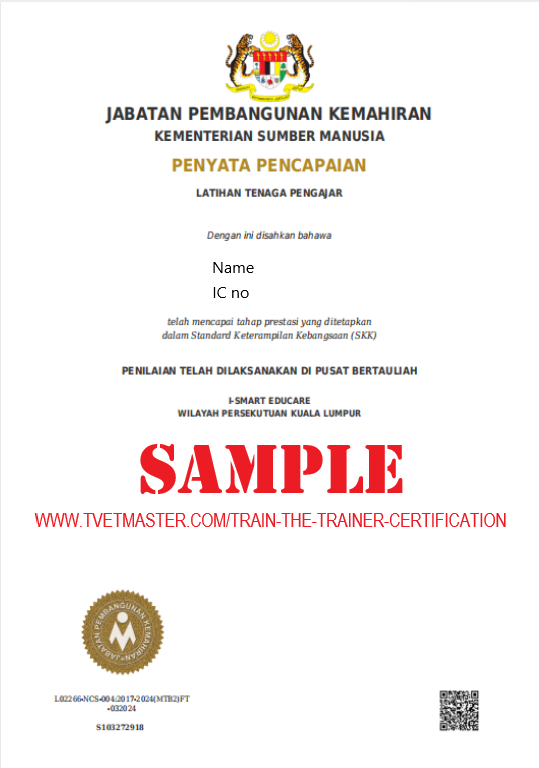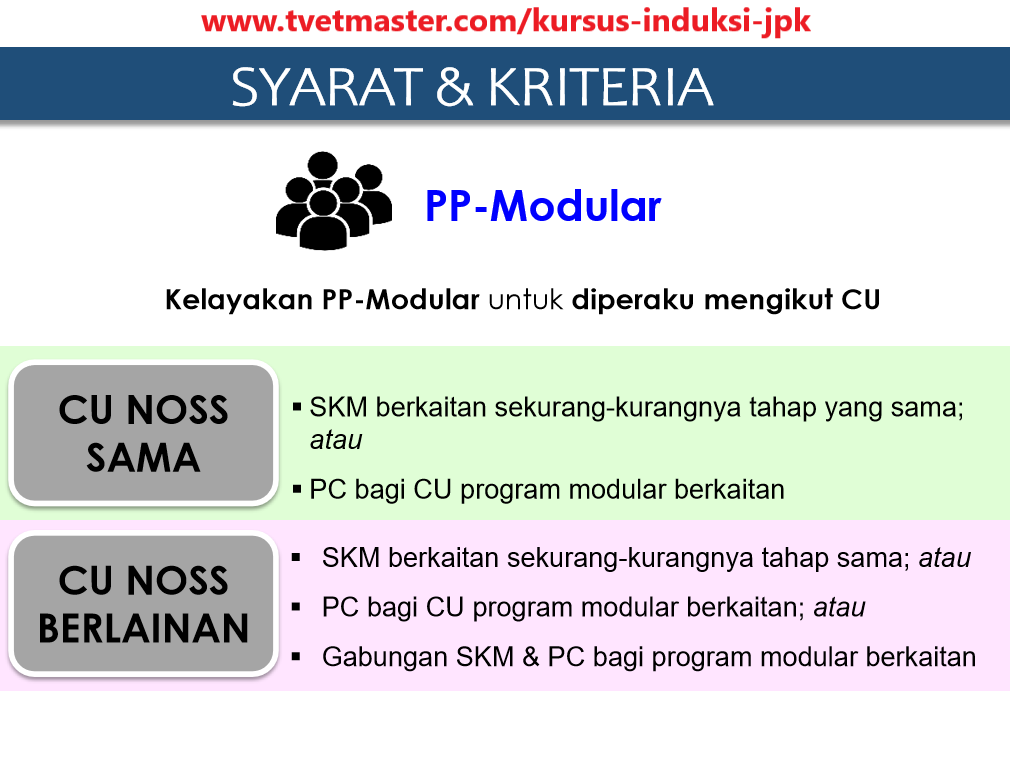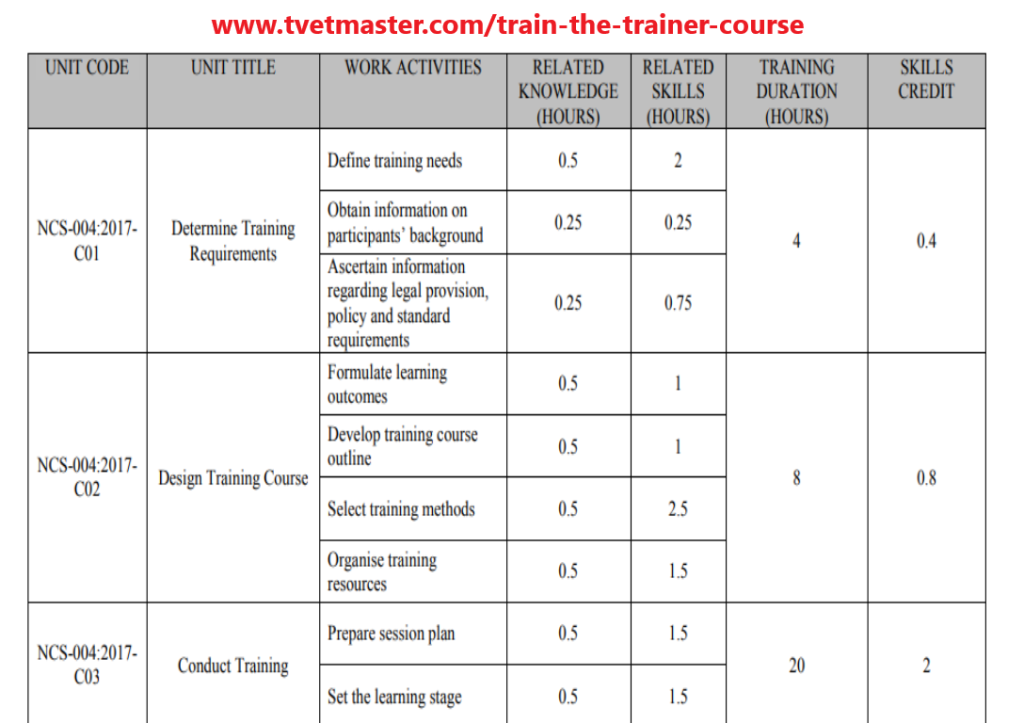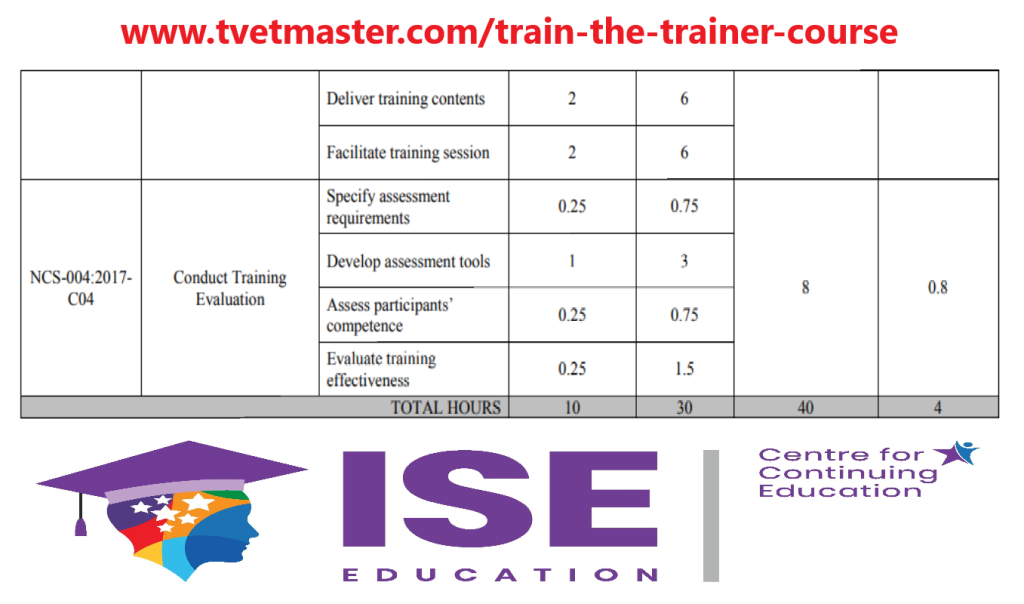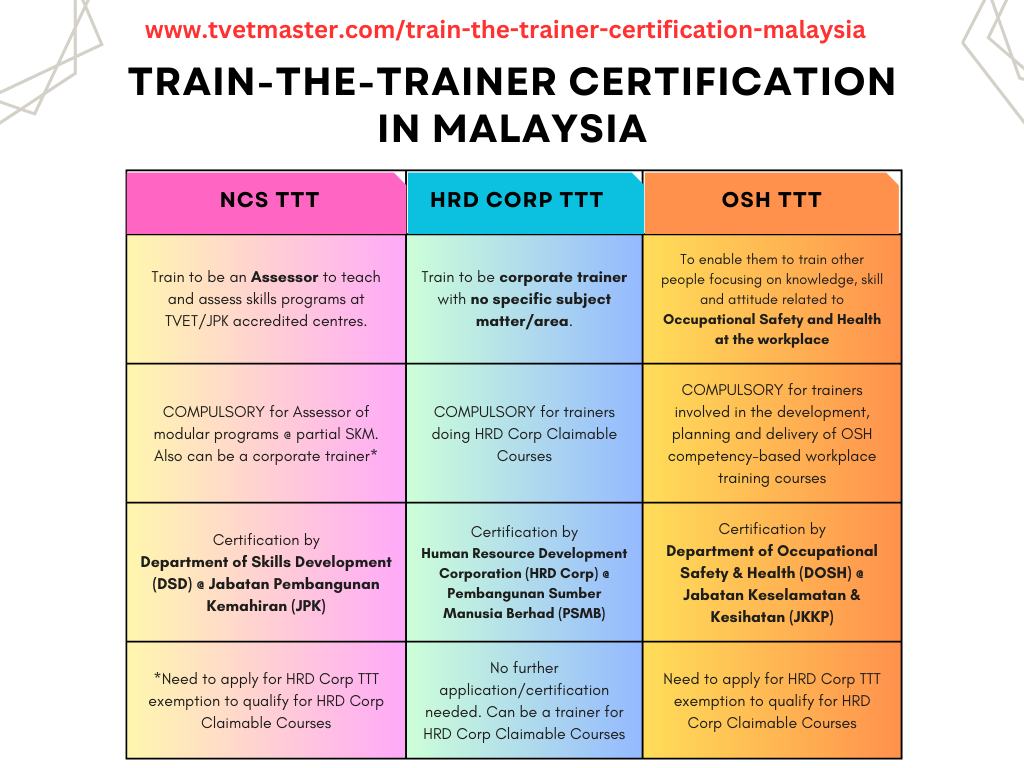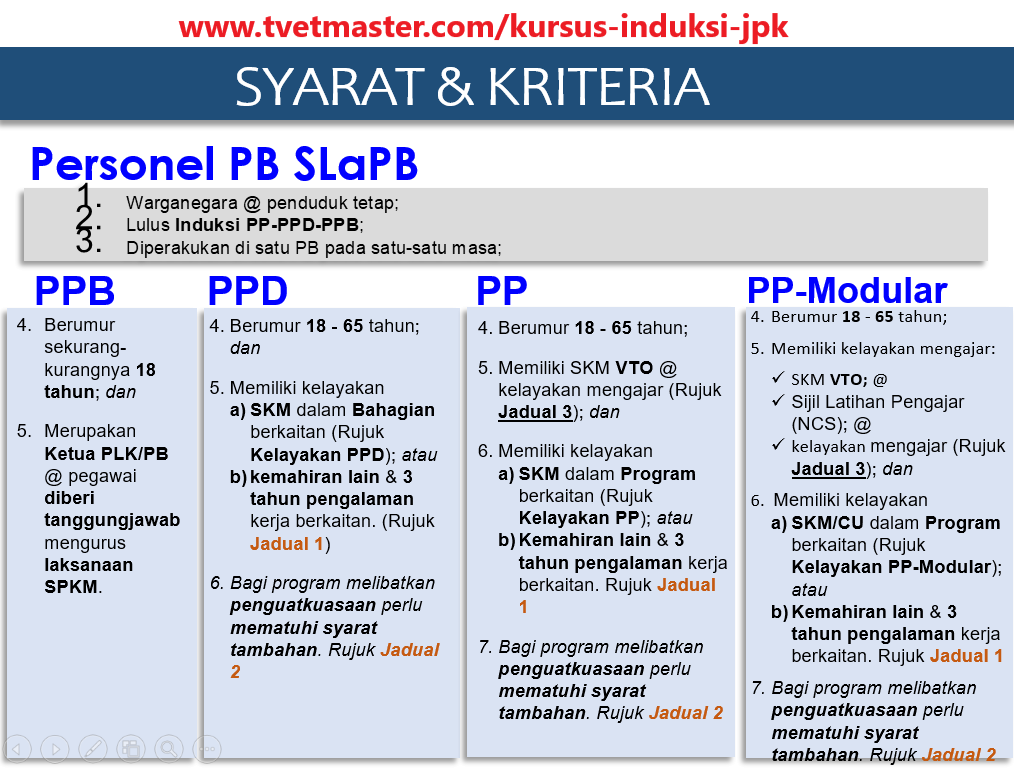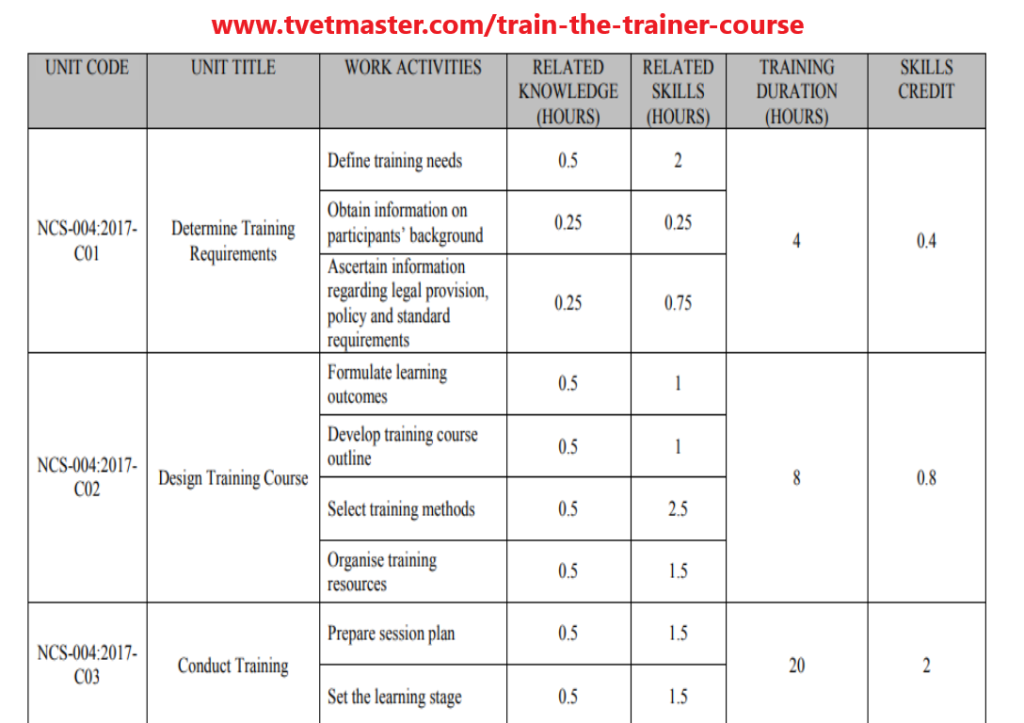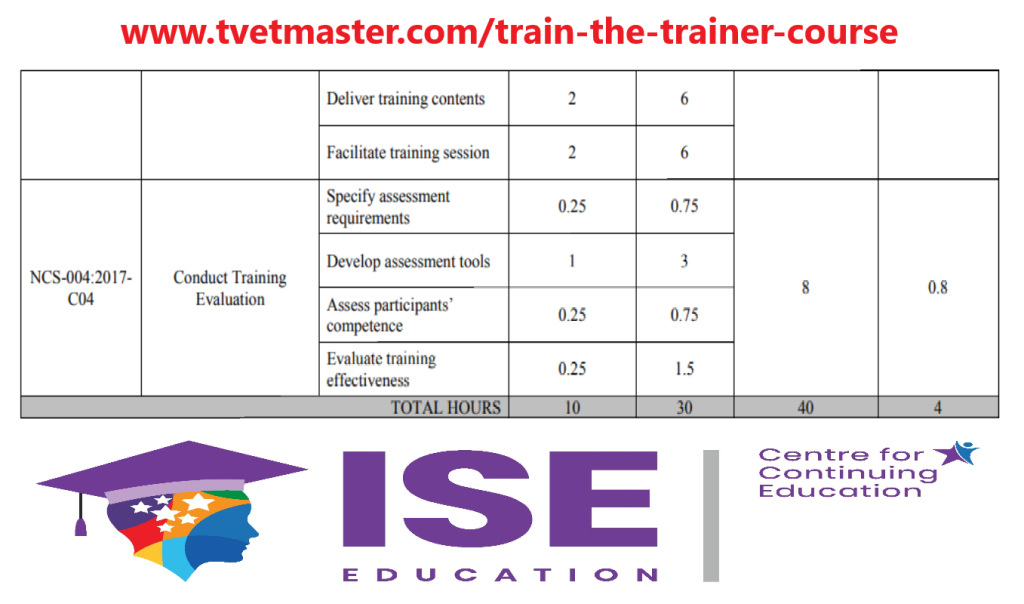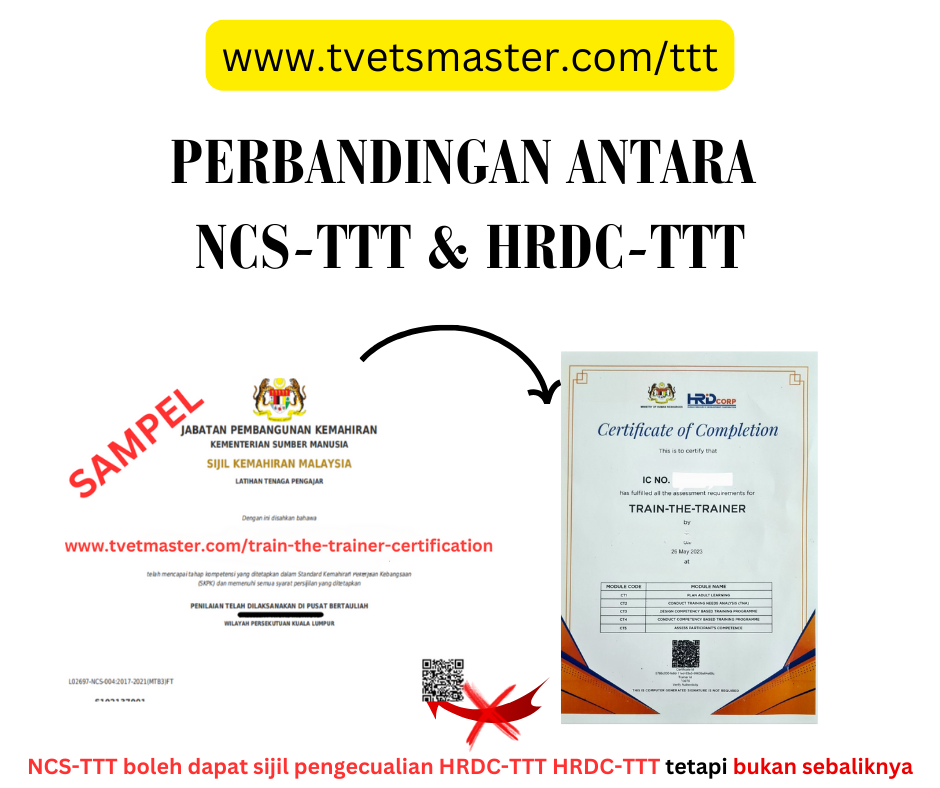Which Trainer Certificate?
The Malaysian training landscape offers a variety of trainer certificates, leaving aspiring trainers wondering which one holds the key to success. This article aims to demystify the options and help you choose the most suitable path for your career goals.
In-Demand Trainer Certificates:
While specific needs vary across industries, some trainer certificates are consistently sought-after in Malaysia:
A) National Competency Standard - Train The Trainer (NCS-TTT)
This certificate equips you with fundamental training and assessment skills, making it a broad and versatile option.

It is nationally recognized trainer certificate that allows you to be:
a) Qualified as an Assessor (Pegawai Penilai) for Modular@Micro-Credential programs in JPK Accredited centres (demand is getting higher with more centres offering Micro Credential programs) AND
b) A HRDC Exempted TTT Trainer
You may apply for exemption of HRDC-TTT Exempted with your NCS-TTT certificate with just RM300 application fee. It opens doors to various opportunities in the Malaysian training landscape, particularly within the corporate sector.
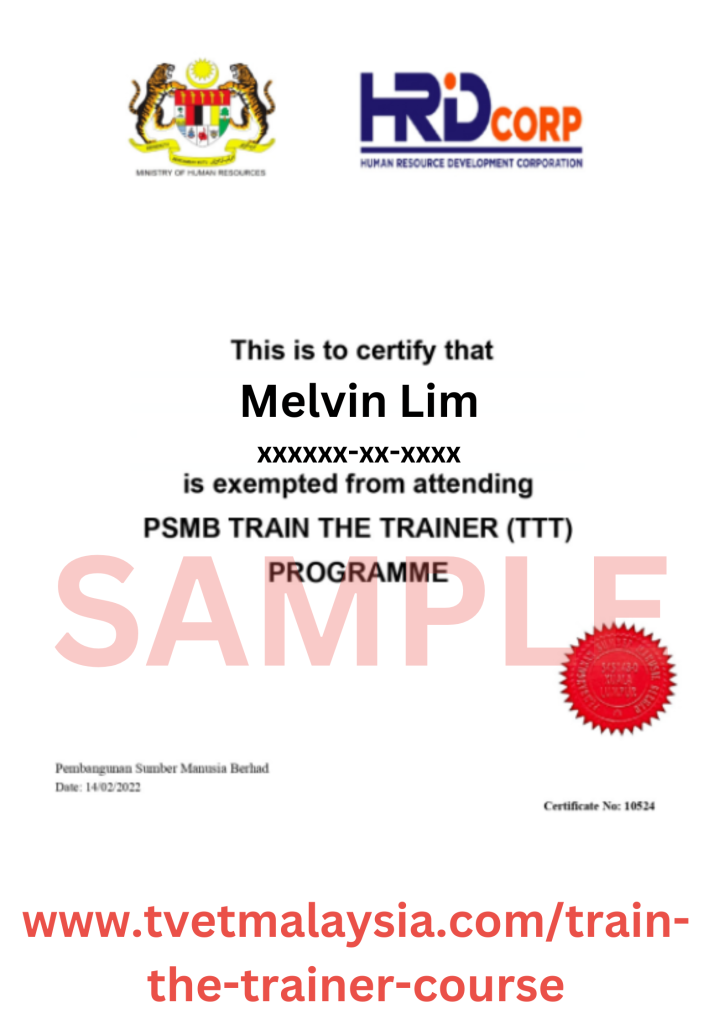
This programme would enable you to:
1. Determine training requirement (Training Needs Analysis@TNA)
2. Design training course (Session Plan)
3. Conduct training (presentation skills)
4. Conduct training evaluation
B) Human Resource Development Corporation - Train-the-Trainer (HRDC-TTT)
If you aim to train within the corporate sector, this certificate caters specifically to the needs of this environment.
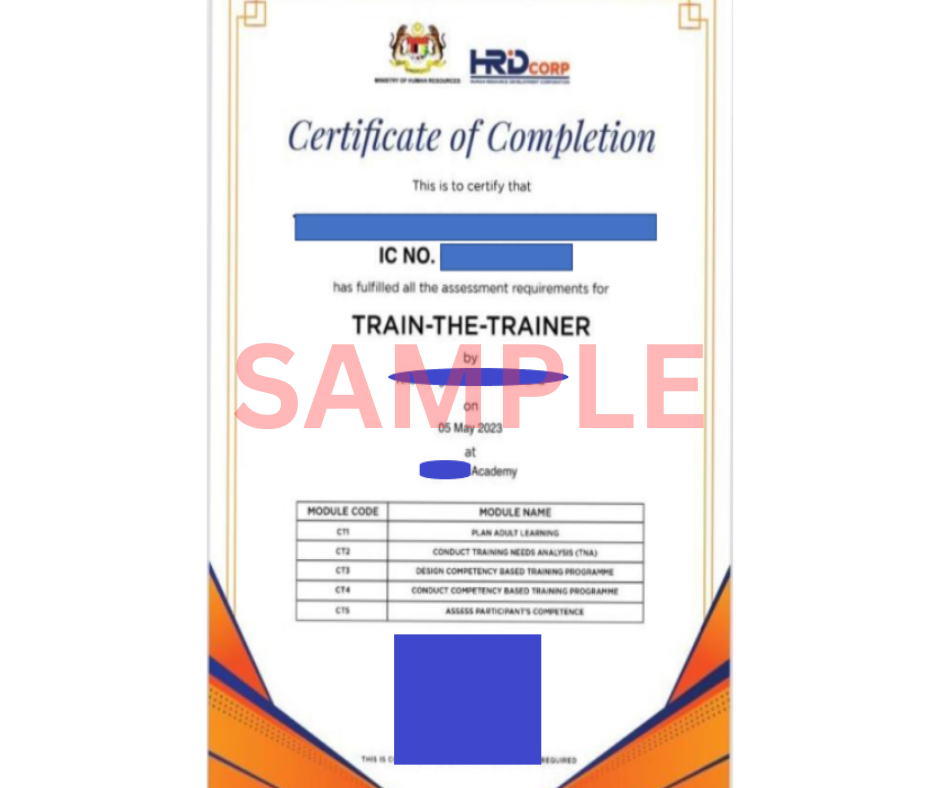
- Conduct HRDF-claimable training programs: The HRDF (Human Resource Development Fund) is a government initiative that allows employers to utilize their levy contribution to train their employees. Trainers with HRDC-TTT certification are eligible to conduct training programs under HRDF schemes, making them valuable assets to companies seeking to upskill or reskill their workforce.
- Offer independent corporate training services: If you possess entrepreneurial spirit, the HRDC-TTT certificate allows you to become a freelance trainer and offer your services indirectly (via approved HRD Training Provider) to companies seeking corporate training solutions.
C) Vocational Training Operation @ VTO
Vocational Training Operation (VTO) has always been the preferred skills trainer certificate by many in the skills industry, including but not limited to the cosmetology, automotive, IT, hospitality, office administration, early childhood etc.
It was high in demand due to it being a compulsory vocational trainer certification for the appointment as an Assessor@PP in ALL the JPK Accredited centres that offers skills@TVET courses, leading to a Malaysian Skills Certificate@Sijil Kemahiran Malaysia.
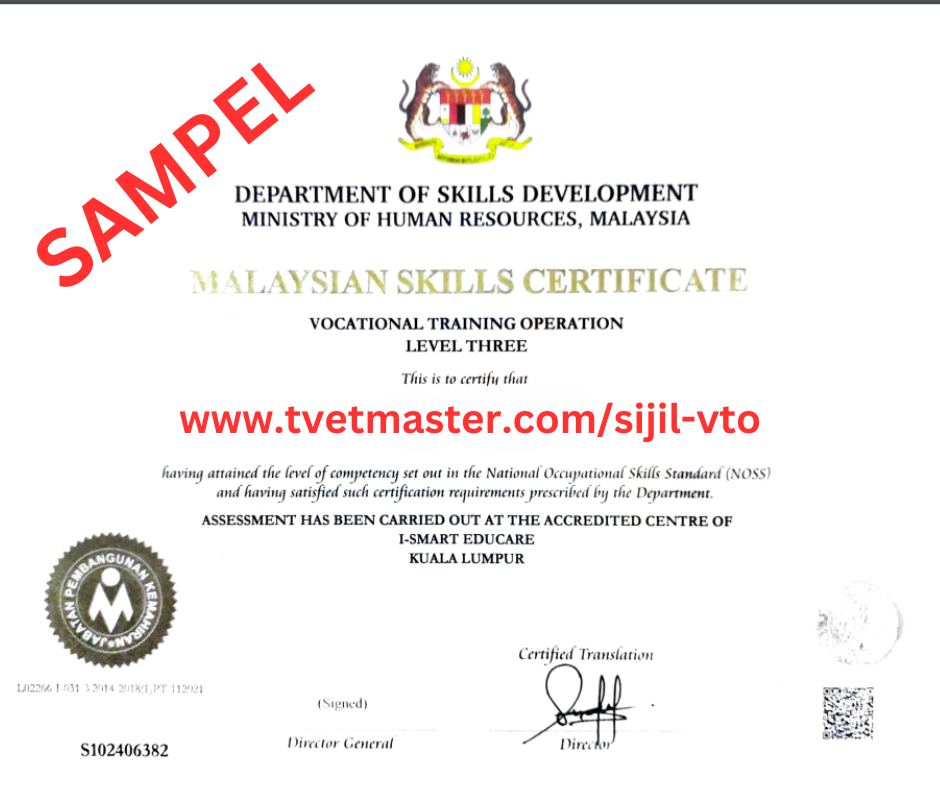
However, VTO NOSS has been phased out beginning July 2022. You also cannot apply for VTO skills trainer certificate any more via Recognition of Prior Learning@Pengiktirafan Pencapaian Terdahulu (PPT) with your years of technical training experience.
Nevertheless, you can still attend VTO* course for now (last year). You need to attend a 6 mths, part time course followed by a 6 mths internship at a JPK Accredited training centre.
Pre-requisite: Must have a SKM3 in any field.
*VTO certification is still recognised as a qualification for the appointment of Assessor@PP in JPK Accredited centre (Pusat Bertauliah SLaPB).
D) TVET Instruction @ TVETi
As we move on to a more digital era, especially post COVID, certain delivery of training are going digital. Hence, TVETi (Level 4) is an upgrade of VTO (Level 3) whereby 2 new Competency Units (CU) replaced some CU in VTO NOSS (refer to the table below (highlighted in red):
CU2 – WA 3&4 (WIM) and
CU4 – Digital Training Implementation
If you still want to apply for a skills trainer certificate@TVET-i via the training experience method, you need to have the following:
- More than 5 years of skills training experience
- Pass SPM BM & Sejarah (if taken post 2013)
- Performed ALL the Work Activities listed in the TVET Instruction (TVET-i) NOSS during your years of training experience (refer to the charts below)

If you do not fulfill the above requirement, the only choice you have is to attend the 1 year VTO course (part time) or TVET-i course full time (9 months in CIAST & it’s satellite campuses around Malaysia)
Do You Really Need VTO/TVET-i Trainer Certificate?
But then, more importantly, you need to ask yourself, do you really need VTO or TVET-i certificate?
Many may not know, in fact, been misled by unscrupulous consultants, that it’s actually unnecessary to have a VTO or TVET-i skills trainer certificate, unless you want to be an Assessor/Pegawai Penilai (PP)* in any JPK Accredited centre (Pusat Bertauliah SLaPB)
* You also need to pair with your SKM3/DKM & PP-PPD-PPB induction cert to be appointed as PP.
If you just plan to teach any programs without issuing SKM certificate via a JPK Accredited centre, it is NOT COMPULSORY to have VTO or TVET-i skills trainer certificate. I know the industry has been somewhat brainwashed to obtain the VTO and now probably TVET-i cert (and being charged exorbitantly, almost double of what the VTO accredited centres are charging!).
E) NDTS Trainer
Another trainer certificate that is needed within the Malaysian Skills Certification System is the trainer appointed at National Dual Training System training centres that conducts theoretical training only.
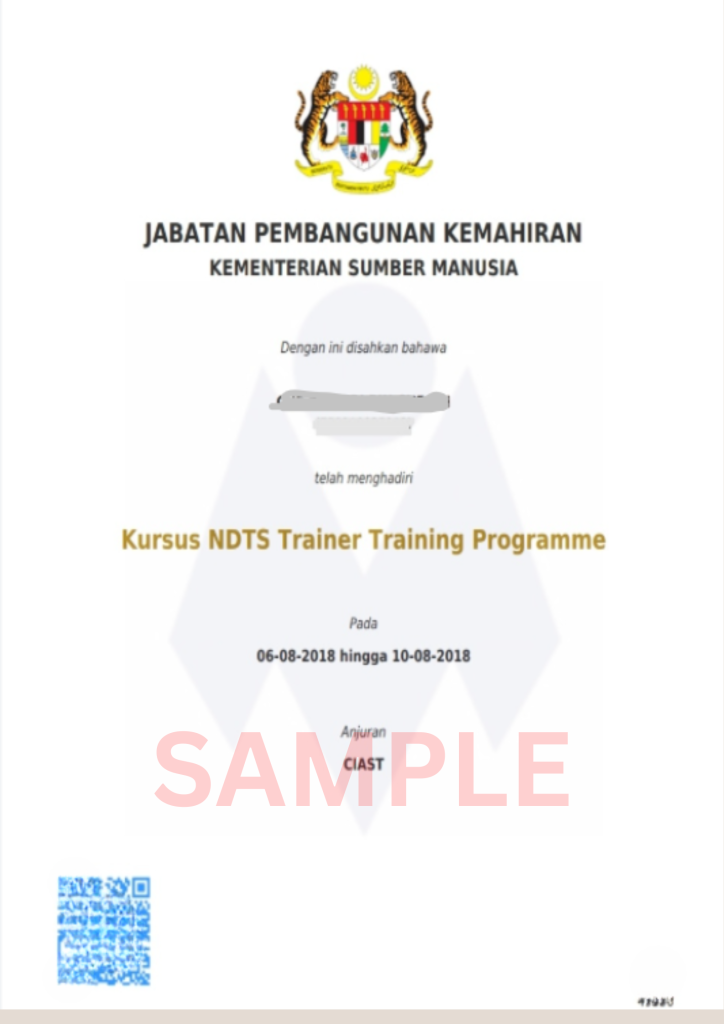
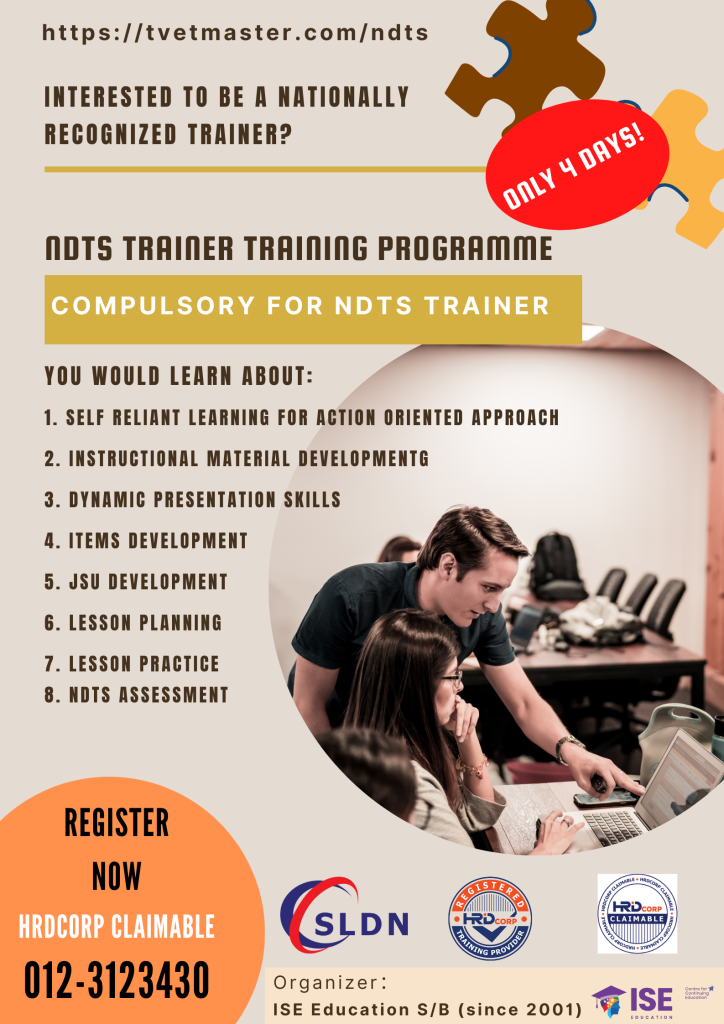
Choosing your Trainer Certificate
The best trainer certificate for you depends on your career aspirations and target audience:
- For general training: NCS-TTT offers a broad foundation.
- For corporate training: HRDC-TTT (which includes NCS-TTT, since it can be exempted) specializes in the corporate setting.
- For vocational training:
a) NCS-TTT for Modular@Micro Credential certification programs
b) VTO or TVETi for SKM/DKM/DLKM certification programs
c) NDTS Trainer for theoretical training in a NDTS setup.
Remember: When choosing your trainer certificate, consider your career goals, target audience and budget. Consult with training providers (preferably accredited by Jabatan Pembangunan Kemahiran (JPK) and/or registered with Human Resource Development Corporation (HRDC), like ISE Education Sdn Bhd) and industry professionals to gain further insights and make an informed decision.
What are you waiting for? Call or Whatsapp NOW for final clarification before deciding on which trainer certificate to obtain!

